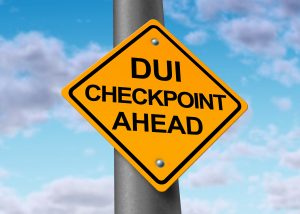Florida, like many states and the federal government, has some draconian asset forfeiture laws. For some reason, the state’s practice of forfeiting property from suspects based on very little evidence does not get much coverage, but taking property from people suspected of committing crimes is a favorite practice of police all over Florida.
As you likely know, when the state accuses someone of a crime, that person is innocent until proven guilty, and the state has the burden of proving guilt beyond any reasonable doubt. The rules are quite different in forfeiture cases. In asset forfeiture cases, the police can take a person’s property based on mere suspicion of criminal activity, and the state gets to keep that property while forcing the claimant to jump through a variety of hoops to try to get the property back. While the state has to prove some connection between the property and criminal activity, as a practical matter the claimant generally has to prove there is no connection between the property and any criminal activity. In some cases, the state can forfeit a person’s property even where the state acknowledges it does not have sufficient evidence to charge anyone with a crime.
In theory, at least, if the state wants to forfeit a person’s property, the state generally has to establish that the property represents proceeds from certain illegal activity (i.e. drug sales proceeds) or the property was used to facilitate certain criminal activity. A recent case south of Jacksonville, Florida shows just how little the state needs to do to proceed with a forfeiture of a person’s vehicle. In this case, the police were executing a search warrant and found a pipe with Methamphetamine residue inside a nice vehicle. Often, the standard for whether the police decide to proceed with asset forfeiture is how much they like the property and whether it is paid off. New vehicles that are paid off are good forfeiture targets. Older vehicles or vehicles with large loan payments are not. In any case, this was a nice vehicle that contained a small pipe with a small amount of Methamphetamine residue in it. The police seized the vehicle for forfeiture.
 Jacksonville Criminal Lawyer Blog
Jacksonville Criminal Lawyer Blog






 In 2009, Bruce Abramski, a former police officer, walked into a local gun shop and purchased a firearm for his uncle. His uncle sent him $400 to make the purchase. Under federal law, the firearm dealer was required to record the buyer’s name, age and place of residence. Abramski filled out ATF Form 4473 stating that he was the actual purchaser. Abramski walked out and immediately transferred the firearm to his uncle. Both Abramski and his uncle were eligible to lawfully purchase a firearm from a federally licensed firearm dealer. Neither one was a convicted felon or otherwise a prohibited person.
In 2009, Bruce Abramski, a former police officer, walked into a local gun shop and purchased a firearm for his uncle. His uncle sent him $400 to make the purchase. Under federal law, the firearm dealer was required to record the buyer’s name, age and place of residence. Abramski filled out ATF Form 4473 stating that he was the actual purchaser. Abramski walked out and immediately transferred the firearm to his uncle. Both Abramski and his uncle were eligible to lawfully purchase a firearm from a federally licensed firearm dealer. Neither one was a convicted felon or otherwise a prohibited person. Most people have heard through school, interaction with the judicial system, television shows or otherwise that there is a constitutional right to jury trial for people charged with a crime. This is usually true, but it is not true in every case. There is an exception for certain minor crimes where a defendant does not have a right to a jury trial and the judge decides whether or not the defendant is guilty of the crime. That exception involves crimes where the defendant cannot be sentenced to jail or prison for more than six months. In other words, if a defendant is charged with a minor crime and the maximum penalty is six months or less in jail, the defendant is not entitled to a jury trial. The parties might agree to a jury trial or the judge might insist on a jury trial, but the law does not give the defendant a right to a jury trial if he/she wants one and the judge will not allow it. Of course, this would only apply to minor misdemeanors, and it would never apply to felonies. However, some people can be seriously impacted by any criminal conviction no matter how minor the charge or by any time in jail and may want a jury trial to protect his/her rights.
Most people have heard through school, interaction with the judicial system, television shows or otherwise that there is a constitutional right to jury trial for people charged with a crime. This is usually true, but it is not true in every case. There is an exception for certain minor crimes where a defendant does not have a right to a jury trial and the judge decides whether or not the defendant is guilty of the crime. That exception involves crimes where the defendant cannot be sentenced to jail or prison for more than six months. In other words, if a defendant is charged with a minor crime and the maximum penalty is six months or less in jail, the defendant is not entitled to a jury trial. The parties might agree to a jury trial or the judge might insist on a jury trial, but the law does not give the defendant a right to a jury trial if he/she wants one and the judge will not allow it. Of course, this would only apply to minor misdemeanors, and it would never apply to felonies. However, some people can be seriously impacted by any criminal conviction no matter how minor the charge or by any time in jail and may want a jury trial to protect his/her rights. In Florida, the general rule is that the police cannot search a person’s property without a search warrant or specific consent from the owner of that property. There are exceptions, of course, but a police search without a search warrant or consent is generally going to be illegal. When the police arrest someone, they can always search that person because the police have a right to determine if the suspect has any weapons or evidence that can be destroyed on him/her. However, that search is generally limited to the person and only after a valid arrest. The police cannot go searching a person’s vehicle or home just because of an arrest.
In Florida, the general rule is that the police cannot search a person’s property without a search warrant or specific consent from the owner of that property. There are exceptions, of course, but a police search without a search warrant or consent is generally going to be illegal. When the police arrest someone, they can always search that person because the police have a right to determine if the suspect has any weapons or evidence that can be destroyed on him/her. However, that search is generally limited to the person and only after a valid arrest. The police cannot go searching a person’s vehicle or home just because of an arrest. As most people are aware in Florida and elsewhere, when the police arrest a suspect or take a suspect into custody, the police are required to read the suspect the Miranda warnings before attempting to take a statement from the suspect. The Miranda warnings discuss a variety of rights, but a primary right that must be disclosed to the suspect is that he/she has a right to remain silent. This means that the suspect can refuse to speak with the police at any time, and the state cannot use the defendant’s silence against the suspect in court. In order for a defendant to assume the protection of the Fifth Amendment right to remain silent, the suspect must clearly state that he/she would like to remain silent or that he/she would like to speak with an attorney before talking to the police. Vague or unclear statements about the right to remain silent and the right to an attorney are not generally held up in court. Additionally, the police want to talk to suspects for a reason- to get evidence they can use to convict them. Therefore, the police may disregard anything but a clear and confident declaration of the right to remain silent and the right to talk to an attorney. If the police think the suspect’s position leaves room for interpretation, the police will often move forward with trying to take a statement.
As most people are aware in Florida and elsewhere, when the police arrest a suspect or take a suspect into custody, the police are required to read the suspect the Miranda warnings before attempting to take a statement from the suspect. The Miranda warnings discuss a variety of rights, but a primary right that must be disclosed to the suspect is that he/she has a right to remain silent. This means that the suspect can refuse to speak with the police at any time, and the state cannot use the defendant’s silence against the suspect in court. In order for a defendant to assume the protection of the Fifth Amendment right to remain silent, the suspect must clearly state that he/she would like to remain silent or that he/she would like to speak with an attorney before talking to the police. Vague or unclear statements about the right to remain silent and the right to an attorney are not generally held up in court. Additionally, the police want to talk to suspects for a reason- to get evidence they can use to convict them. Therefore, the police may disregard anything but a clear and confident declaration of the right to remain silent and the right to talk to an attorney. If the police think the suspect’s position leaves room for interpretation, the police will often move forward with trying to take a statement.